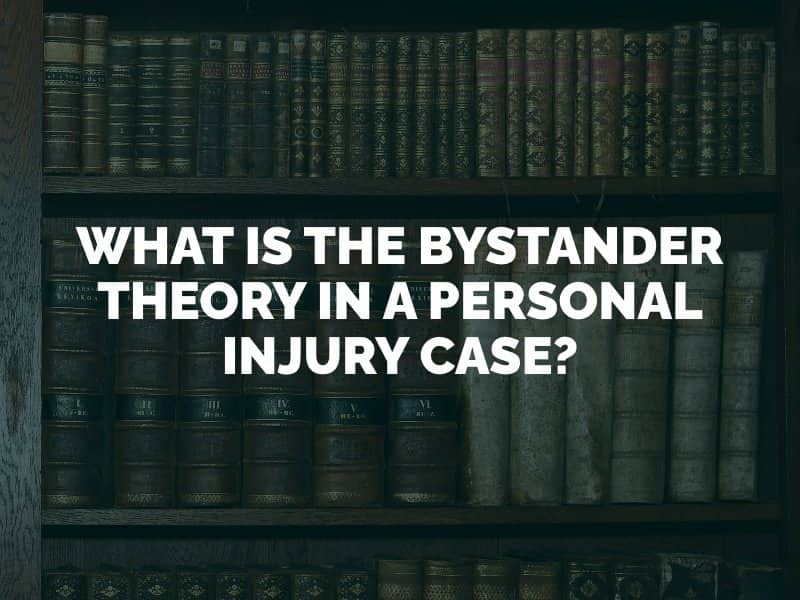In Colorado, someone who witnesses a loved one or close relative get injured or killed could recover financial compensation for the trauma suffered from the person responsible for the victim’s harm. This is known as the bystander theory of recovery. Collecting financial compensation through the bystander theory comes with certain requirements in Colorado.

The bystander theory allows someone who witnesses a loved one get hurt in a traumatic accident to collect compensation for the emotional distress inflicted. It recognizes the emotional damage that can be caused by witnessing someone you love get seriously injured or killed by the negligence of another person. An example is a parent who witnesses his or her child get hit by a car when crossing the street. In this scenario, the parent may be eligible for financial compensation for the emotional distress and psychological trauma caused by witnessing the child get hit.
Whether or not a financial recovery is available to a bystander is highly dependent on the circumstances and facts of the case. The courts in Colorado have made different rulings based on specific facts, such as the relationship between the bystander and the victim, whether the bystander directly witnessed the accident or observed the injuries later, and the degree of emotional harm suffered by the bystander.
In general, however, three main elements must exist for a bystander to qualify for financial compensation under this legal theory in Colorado:
A bystander claim is a complicated type of liability case in Colorado. These cases can be difficult to prove and win. You may need to hire a Denver personal injury attorney to help you establish the elements of this type of case. A lawyer will help you collect evidence to support your bystander claim, such as records and notes from your psychiatrist proving that you have symptoms such as trouble sleeping, flashbacks, depression or anxiety connected to the incident. Your lawyer can also establish that you had a relationship with the victim that qualifies you for bystander damages.
Colorado only allows financial recoveries for a bystander’s emotional distress in very specific circumstances. To find out whether you have grounds to file this type of claim in Denver, you may need to consult with an attorney. An attorney can help you understand if your case has merit after investigating what happened, such as your relationship to the accident victim and the effects that the incident had on your mental health. Your lawyer will be your advocate throughout the legal process to help you get your own justice after witnessing a traumatic accident.